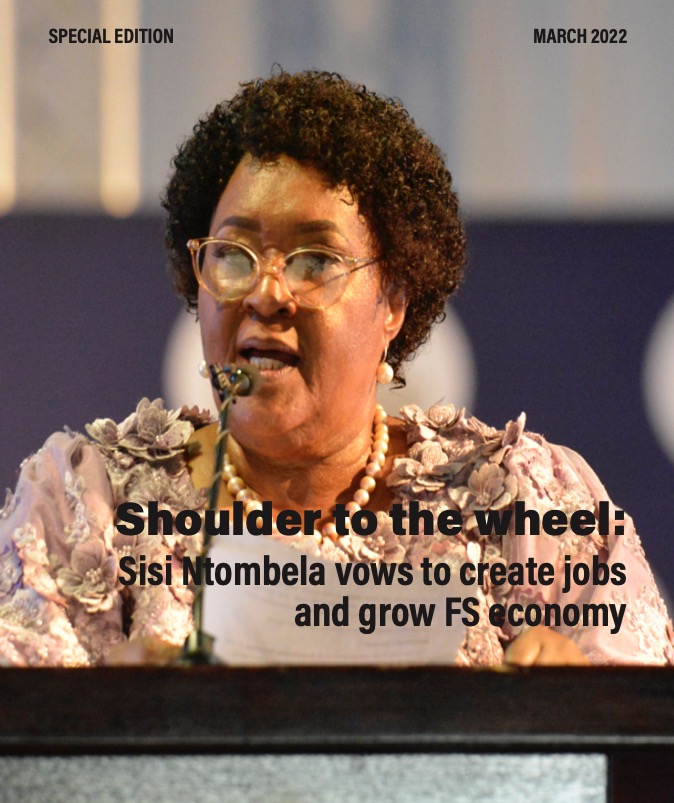AS SOUTH AFRICA prepares for level 3 lockdown, unions are working around the clock to ensure companies comply with safety standards and regulations.
For the Food and Allied Workers Unions (Fawu) and the South African Commercial, Catering and Allied Workers Union (Saccawu), whose members work in the food supply chain, level 3 means upping the ante on companies to comply with safety measures.
Fawu is affiliated to the South African Federation of Trade Unions, while Saccawu is a member of the Congress of South African Trade Unions, which is in a formal alliance with the governing African National Congress.
Fawu and Saccawu represent members in the beverage (non-alcoholic and alcoholic), the wholesale and retail, the farming, the fast food and the hospitality sectors. Combined, the two unions represent more than 200,000 workers across those sectors.
Since level 5, workers in those sectors – barring hospitality, fast food and alcoholic beverages – have been reporting for duty because the government categorised food production and the food value chain as essential.
“We’ve been frustrated,” says Mngomezulu, adding “we had to fight.”
During level 5 lockdown, Fawu resorted to threatening employers with court action if they failed to comply with health and safety standards. That includes the provision of personal protective equipment (PPE) – such as masks – and social distancing in the workplace.
A key weakness which has emerged is the department of labour’s lack of capacity, specifically the shortage of inspectors, who would ideally visit workplaces to enforce compliance.
Despite this, Mngomezulu notes the situation improved under level 4 lockdown. The union is now ramping up its efforts for level 3 lockdown.
Comply or face the law
In the alcoholic beverages sector, “we are working closely with …. companies – SABMiller, Heineken and Distell. We told them [if] they dare make a mistake, we are going to make sure … plants are closed. The minister says unions must fight and make sure they report to him,” says Mngomezulu.
The minister in question is Ebrahim Patel, who is in charge of trade and industry, and is himself a former union organiser.
Patel’s ministry is responsible for ensuring businesses adhere to lockdown regulations. Also, the minister’s department determines conditions of trade.
On Tuesday, Patel was in conversation with Fawu, reveals Mngomezulu: “he was canvassing with us to realise that we have to fight … and expose every employer to the government that might be contravening regulation[s]. In particular, PPE compliance and social distancing.”
Fawu has cautioned managers and CEOs that the union is prepared to file criminal complaints of attempted murders on an individual basis in the event of suspected reckless conduct.
“This is a difficult time. We are discussing all measures. We … have [proposed] workplace committees … and education,” explained Mngomezulu.
Livelihoods affected
Fawu is also confronting the reality of job losses arising from economic pressures induced by the global pandemic on some sectors and companies.
Most recently, Fawu has received notices from large companies proposing retrenchments and salary cuts.
On Tuesday, listed food producer Tiger Brands told the market it intended to institute company wide retrenchments, citing trading difficulties arising from the COVID-19 crisis.
On Wednesday, the Restaurant Association of South Africa signalled its intention to challenge level 3 lockdown regulations in court.
During level 3, sit-down restaurants, bars, gyms, hotels, theatres and conferences are prohibited from operating, so is the sale of tobacco products. But churches are allowed to conduct services with a maximum of 50 people in attendance.
“Most of our members in the restaurant and hospitality [industries] have lost jobs because of this COVID-19 pandemic,” notes Mngomezulu. He adds that Fawu supports the association’s planned court action.
Bumpy road ahead
Saccawu’s biggest concerns in a level 3 environment are the availability of PPE, South Africa’s transport infrastructure and the possibility of a rise in infections, says Sikani.
“We are in the coalface, dealing with customers [and] the public. [Employers] expect us to push them or fight over … the regulations,” adds Sikani.
Saccawu will make its position known next Tuesday about the impending court challenge against level 3 regulations.
“We are wary to support without proper [consultation],” notes Sikani.
Controversial reopening of lockdown
The country will move to level 3, starting on Monday 1 June 2020 after being on level 4 since 1 May.
Under level 3, the sale of alcohol will be permitted, schools and universities will reopen, and most of the restrictions imposed on the sale of non-essential items will be lifted.
Domestic air travel will resume, though South Africa’s borders will remain closed. But the government will allow the movement of goods, the operation of inbound and outbound repatriation flights, and limited travel for South Africans who want to return overseas for schooling or work.
In Africa, South Africa has the highest confirmed cases of COVID-19 (nearly 26,000) and deaths (over 500) linked to the virus.
Although President Cyril Ramaphosa initially won praise for acting swiftly to curb the rapid spread of the virus in the country, he has now come under heavy criticism with each successive level of the lockdown.
(Source: The Africa Report)



